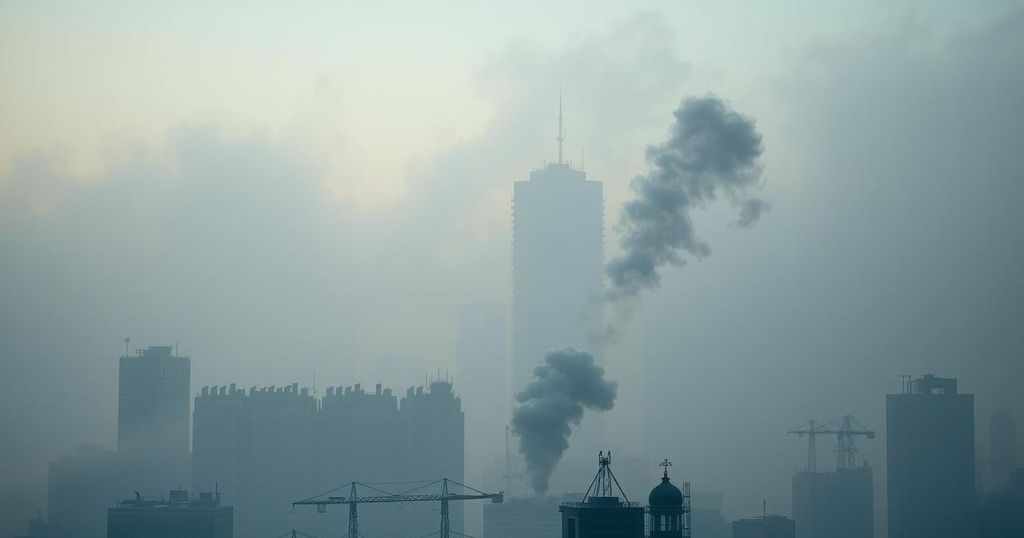Pakistan Ranks Third in Global Pollution Index Amid Deepening Smog Crisis
In 2024, Pakistan is ranked the third most polluted country globally, facing a severe smog crisis affecting public health. With PM2.5 levels alarmingly above WHO standards, cities like Lahore and Multan are among the most affected. Approximately 70% of the population reports health issues due to smog, prompting urgent calls for policy action.
In 2024, Pakistan has been designated as the third most polluted nation globally, as reported by the World Air Quality Report published by IQAir, which highlights the escalating smog crisis adversely affecting public health. Major urban centers such as Lahore, Multan, and Peshawar have experienced the worst impacts, with alarming health complaints emerging from approximately 70% of the population due to pollution-related ailments.
The report indicates that Pakistan’s concentration of PM2.5, which is fine particulate matter that poses health dangers, was recorded at 73.7 micrograms per cubic meter (μg/m³). This figure is nearly fifteen times higher than the World Health Organization’s safe threshold, placing Pakistan behind only Chad and Bangladesh in pollution severity, with the Democratic Republic of Congo and India following next.
Punjab declared a “calamity” following unprecedented levels of smog in 2023, necessitating medical care for nearly two million residents afflicted by pollution-related issues. Despite government interventions such as lockdowns and school closures in severely polluted areas, pollution levels remained unchanged from the previous year.
Pakistan ranked second among Central and South Asian nations regarding pollution, with cities like Lahore, Multan, Peshawar, and Sialkot listed among the region’s fifteen most polluted locations. The primary contributors to the persistent high pollution levels in Pakistan include biomass burning, industrial discharges, automotive emissions, brick kilns, and airborne construction dust.
Compared to 2023, pollution levels have worsened in key cities like Peshawar, Islamabad, Rawalpindi, and Lahore, whereas the city of Karachi observed a reduction in PM2.5 levels, dropping from over 55 μg/m³ to approximately 46 μg/m³. Alarmingly, five Pakistani cities recorded PM2.5 readings exceeding 200 μg/m³ in November 2023, indicating a critical environmental health crisis.
Research conducted by Ipsos also noted that 70% of the Pakistani populace suffers from health issues attributed to smog, accentuating the urgency for effective policy measures to address the deteriorating air quality and safeguard public health.
Pakistan has been identified as the third most polluted country worldwide, grappling with a serious smog crisis that has led to significant health repercussions for the populace. With alarming levels of PM2.5 exposure and cities severely affected, experts urge immediate action to mitigate pollution and protect public health. The ongoing environmental crisis reflects the urgent need for comprehensive policy responses to curb pollution from various sources in urban areas.
Original Source: www.republicworld.com




Post Comment